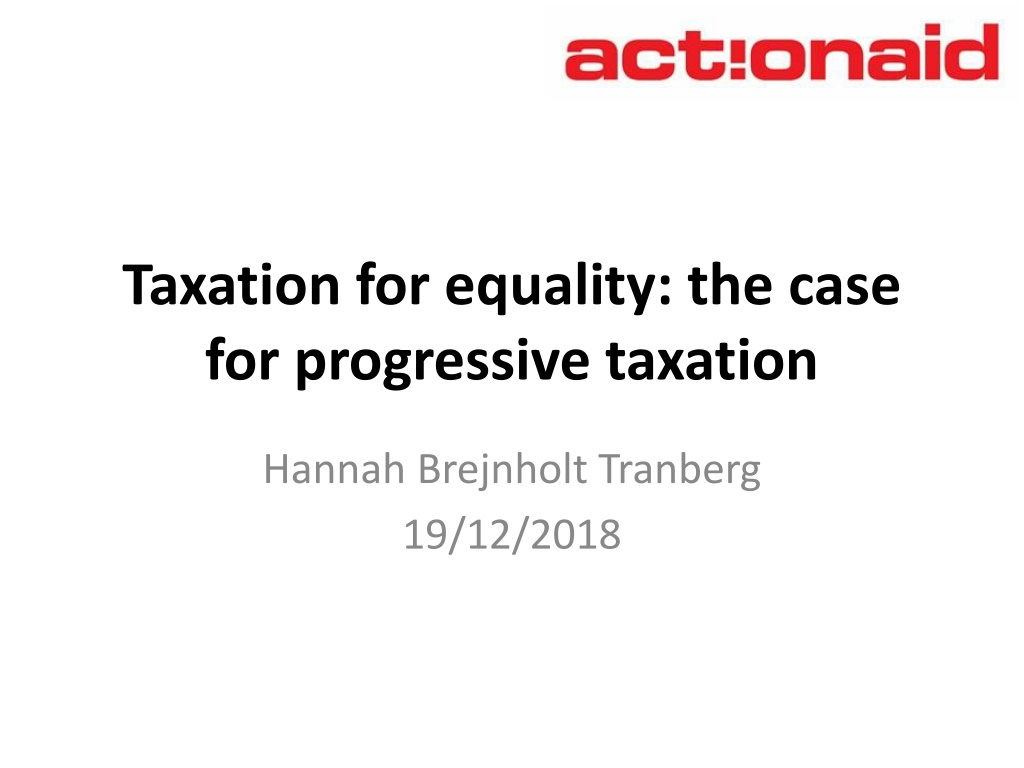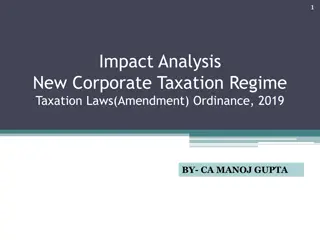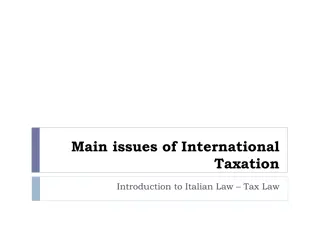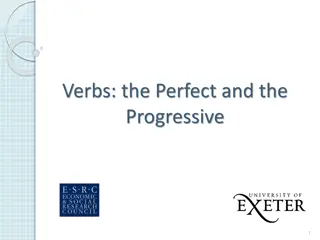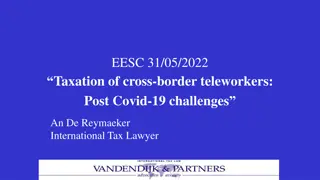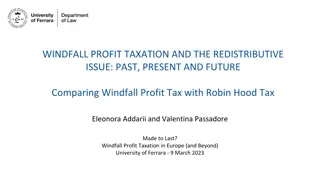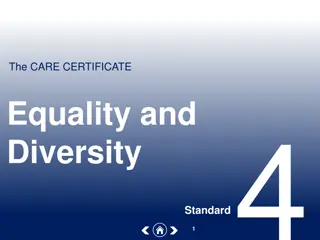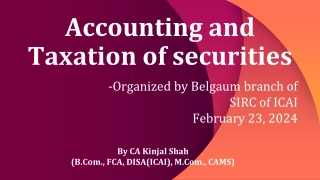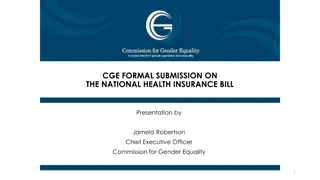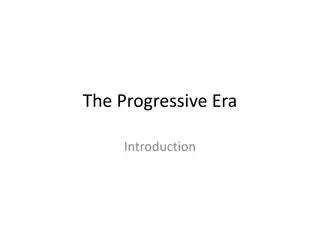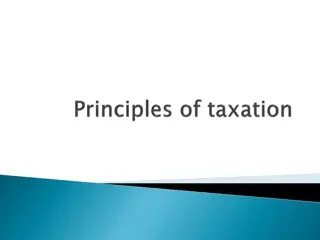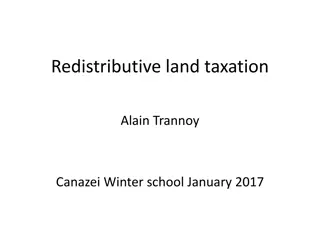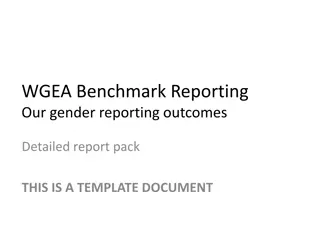The Case for Progressive Taxation: Ensuring Equality Through Fair Contributions
Progressive taxation involves higher tax rates for individuals with higher incomes or greater wealth, aiming to bridge economic and gender inequalities. This system can be achieved through well-designed tax scales, exemptions, and thresholds, ultimately contributing to fair distribution of contributions. Developing countries especially benefit from progressive taxation to finance development and meet sustainable development goals, as regressive taxes risk exacerbating poverty and economic disparities. The reliance on consumption taxes like VAT in some countries can lead to issues of tax avoidance and evasion, impacting the balance of contributions from different income groups.
Download Presentation

Please find below an Image/Link to download the presentation.
The content on the website is provided AS IS for your information and personal use only. It may not be sold, licensed, or shared on other websites without obtaining consent from the author. Download presentation by click this link. If you encounter any issues during the download, it is possible that the publisher has removed the file from their server.
E N D
Presentation Transcript
Taxation for equality: the case for progressive taxation Hannah Brejnholt Tranberg 19/12/2018
Taxation for equality: the case for progressive taxation 1. Equality and progressive taxation 2. ActionAid s briefings on progressive taxation 3. Why progressive taxation is important for developing countries 4. What can the EU and Member States do?
1 Equality and progressive taxation We want progressive tax systems that distribute contributions fairly and serve to bridge economic and gender inequalities. What is progressive taxation? Higher tax rates for those with higher income or more wealth. Taxes can be made more progressive with well-designed scales, exemptions and thresholds. What matters for the overall progressiveness of a tax system is the mix of different types of taxes and the rates applied to them.
2 - Our briefings on progressive taxation We have developed eight briefings: Introduction to Progressive Taxation Value-added tax (VAT) Capital gains tax International trade taxes Taxes on the informal sector Property tax Excise taxes Wealth taxes Upcoming: personal income tax and corporate income tax
3 - Importance for developing countries Domestic resource mobilisation is vital to financing development and the SDGs. How tax is raised matters: regressive taxes risk pushing people into poverty, and risk worsening economic inequalities unless offset by strongly progressive spending. The value-added tax (VAT) as an example: increasing evidence of the disproportionate impact that it can have on the poor. Despite this, at the moment, developing countries tend to increasingly rely on VAT and other consumption taxes.
3 - Importance for developing countries - cont'd For example, between 2012 and 2016, Uganda raised more than a third of its total tax revenues from VAT, while Ghana raised about 29%. In comparison, in the EU, the contribution of VAT to total tax revenue averages only 17.5%. Developing countries increasing reliance on consumption taxes is accompanied by a massive scale of tax avoidance and tax evasion. This effectively means that the balance of contributions is shifted towards those earning less.
3 - Importance for developing countries - cont'd There is no one-size-fits-all solution for a progressive tax system. However, governments should ensure that their tax systems do not reinforce gender and economic inequalities. Our recommendations: Impact analyses on how implementation of a specific tax will affect different segments of society Better communication to the public about taxes and how they are spent Well-resourced and trained tax administrations Transparency towards other tax authorities as well as towards the public
4 - What the EU and Member States can do In the new European Consensus on Development, the EU and Member States have committed to work with partner countries to promote progressive taxation and redistributive public policies . Two key ways in which EU countries can do so: 1. by playing their part in curbing tax avoidance and evasion by corporations and wealthy individuals. Leading by example, including by ensuring a high degree of Policy Coherence for Development, is essential; through aid to domestic resource mobilisation, including budget support or collaboration with other international and regional organisations. 2.
